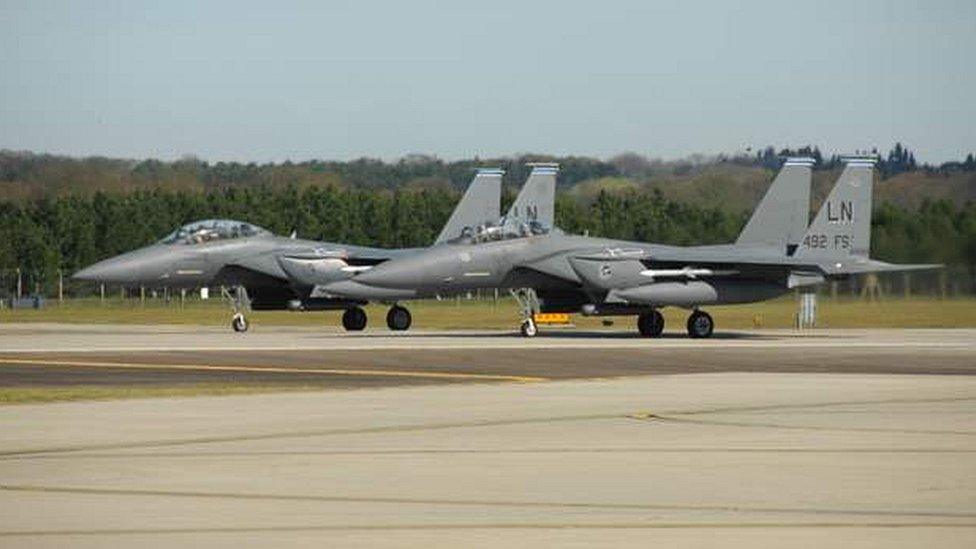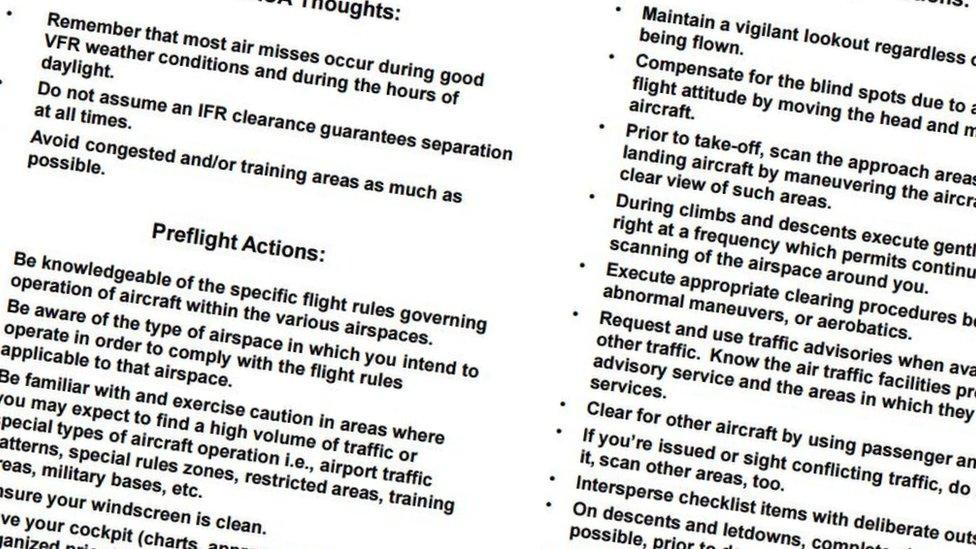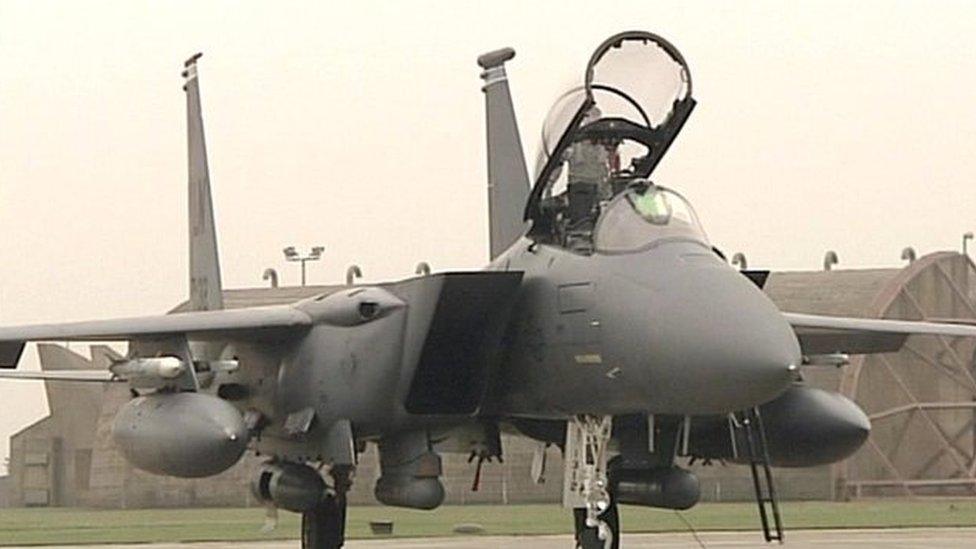Fighter pilots told 'keep windscreens clean' to avoid crashes
- Published

One case this year involved RAF Lakenheath-based F-15s which came within 50m (150ft) of an RAF Voyager
The US Air Force (USAF) has urged its UK-based pilots to keep cockpit windows clean to avoid mid-air collisions with civilian aircraft.
RAF Lakenheath-based USAF F-15 jets were involved in 19 near-misses with UK aircraft in the past five years.
An F-15 pilot from the Suffolk base was recently praised after spotting a glider by eyesight rather than radar and avoiding a collision.
The USAF said its pilots were trained to fly in a "vigilant state".
The near-miss in April happened when a pair of low-flying F-15s came close to a glider over the Black Mountains near Hereford.
The British Glider Association commended the F15 pilot's look-out skills.
More than 1,000 near-misses have been reported to the UK Airprox Board in the past five years, of which about 360 have involved UK or US military aircraft.
One of the most serious happened in January when two F-15s from RAF Lakenheath came within 50m (150ft) of an RAF tanker plane.
The USAF said not only was there "increasing general aviation traffic" but smaller civilian aircraft were not equipped with transponders, meaning they may not be picked up on radar.
Nearly all of the US aircraft based at RAF Lakenheath operate on ultra high frequency (UHF) radio and cannot hear civilian aircraft, which use very high frequency (VHF), the USAF says.

The reference sheets given to pilots at RAF Lakenheath outline a number of measures aimed at avoiding mid-air collisions
As a result, the USAF has urged its pilots to use what it describes as "see and avoid" - essentially to keep a look out.
A reference sheet for USAF pilots at RAF Lakenheath, which is home to the US 48th Fighter Wing, urges them to keep their windscreens clean, external and to "consciously note how much time you spend looking outside the cockpit".
A USAF spokesman said: "Sometimes little things like keeping your screen clean can make the difference.
"Safety is always a priority for our pilots, who are trained to maintain a vigilant state of situational awareness at all times.
"The airspace above the United Kingdom remains busy and complex, but we are confident the risk of airprox (air proximity) events is minimized by our continuous training, consistent focus on flight safety and our direct communication with Royal Air Force and civilian air traffic control services."
- Published24 July 2017
